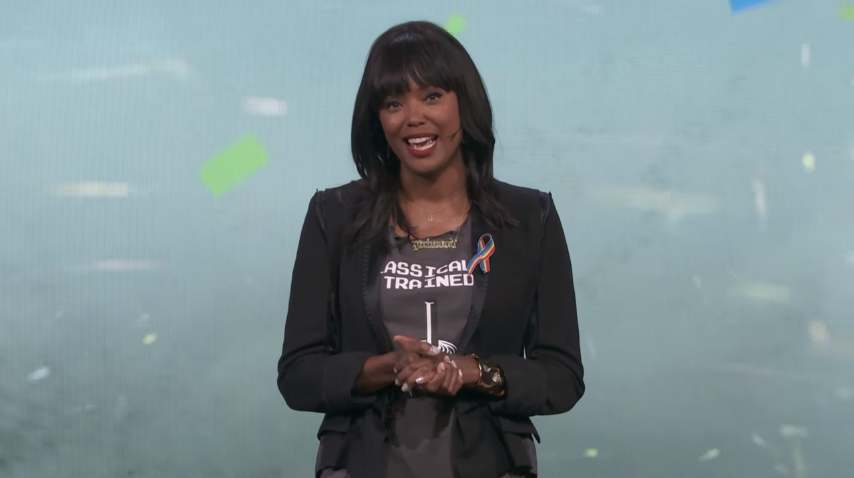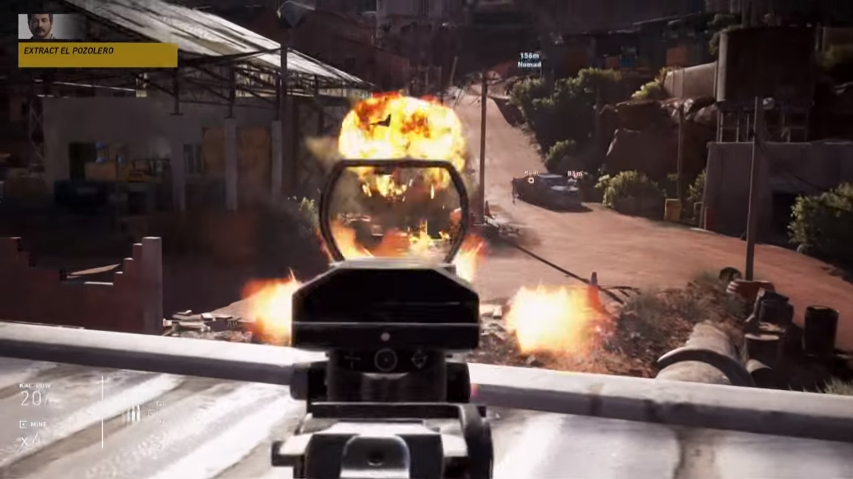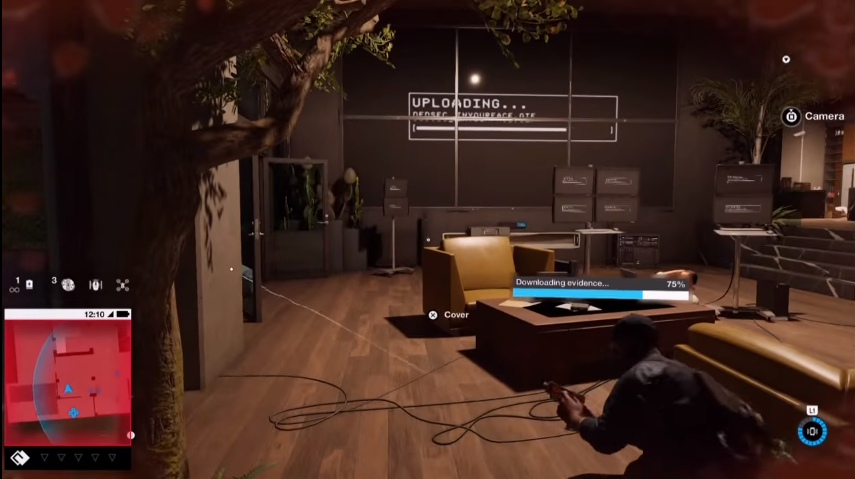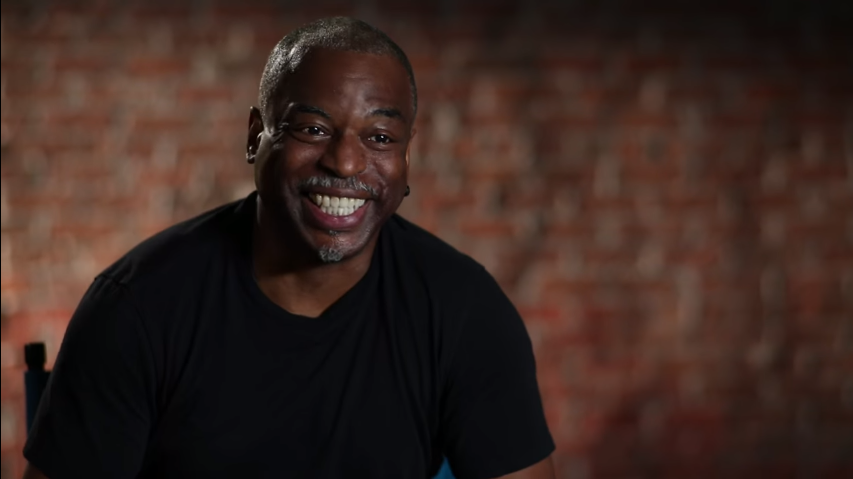E3 2016: Ubisoft
By gamer_152 0 Comments
One encouraging trend of the 2016 conferences has been the move away from novelty comedy and the reduction of time lost to items with little connection to gaming. Even Ubisoft, who are particularly famous for their “How do you do, fellow kids?” antics felt like they were more serious about being seen as a video game company this year. They got their silliness out up front with a big song and dance number, and there were no meme brainstorming sessions or machinima videos of Aisha Tyler getting hit with a truck in sight. Even Tyler’s humour seemed more on point this time around. There was still that one insistence that “girl wood” is a funny joke, but a few fiery jabs at various industry targets with a proper actor’s delivery made for some genuine flashes of amusement. If you have Lana Kane at your press conference, for god’s sake use her. At the same time, this puristic approach to a games conference doesn’t make as much sense for Ubisoft as it does for a company like Microsoft.

The poorly conceived bits are partly what you show up to Ubisoft for. This is to some degree because they don’t have the games library to carry a conference just based on demos and trailers. In some areas Ubisoft compensated for this well and in other areas they seemed somewhat oblivious to it. Like many other publishers this year, this Franco-international giant was scuppered by pacing issues. They were the last company that should have been running a two hour show and these briefings are simply not the place for sit-down chats with developers. But, to their credit, they opened with demo that flowed and was actually demonstrative.
Tom Clancy’s Ghost Recon: Wildlands is a game that seems to be presenting action scenarios familiar to the point of cliche, but attempting to elevate itself by filtering those scenarios through a gauze of online co-operative play. It’s just hard to see it as enough. There are plenty of other games out there where you can skulk around some windswept scrublands clutching an assault rifle and Grand Theft Auto V already does a fantastic line in online co-op gunfights, helicopter rides, and vehicular chases. Wildlands does get a little more interesting however when you consider that it featured fake player chatter in a way that other demos this year abandoned.

There is an odd logic to including this scripted banter in your briefing. These on-stage play sessions are ideally representative of the real experiences you’ll have with the games, but a significant part of enjoying games with friends is the social interactions you have during play. That’s not something that’s going to be simulated by just having people run through the software in front of you, and so in an effort to show what a good time you can have with your pals in-game, the painful multiplayer chatter scripts get dragged out. The typical comment about them is “This is never how people talk", and that’s a product of both the bad acting and unrealistic enthusiasm of these presentations, but with a game like Wildlands it’s also to some extent because the publisher is using that chatter to convey details about the game. If we were seasoned players of this title we might understand that we can use computers to get information about our mission targets, but as an audience seeing the shooter for the first time, we might not, and so scripted gamer conversation can be a way to impart that information. This isn’t a defence of any of this hammy, patronising communication, just an exploration of where it comes from.
Speaking of bad communication, let’s talk about that South Park demo. I’m just not a particular fan of them putting that whole “Cartman’s alias is a racial slur” gag front and centre. I know a lot of people won’t feel the same way or will disagree with me about the potentially problematic nature of this creative decision, but the reaction gets more extreme than that. There are large groups of people who are insulting or mocking others at the slightest sign that they might be offended by this use of racially charged language. There are even people who are becoming angry at or expressing conspiratorial ideas towards those who aren’t laughing along with the joke like them. The level of paranoia that other people might think something you like is in poor taste has reached absurd heights. A marginally more thoughtful reaction is the old “This is satire”, but surely good satire is supposed to challenge sociopolitical conceptions. When people hear Cartman throwing that racial slur around does that wake them up to the dehumanising lens through which western society views black people? And does it make people ponder the continued subjugation non-whites face in our communities, or does it encourage them to gleefully indulge in the use of derogatory language for a couple of seconds and quickly move on from what is a throwaway joke?

Watch_Dogs 2 is also a game that has a relation to troubling social issues, but claims to be meaningfully exploring them. Of course, there are all sorts of valid reasons to raise an eyebrow to that notion. One of the problems with the original game was that it was cluttered with narrative ideas, diminishing the sense it had an overarching identity and keeping it from going deep on any one concept. Watch_Dogs 1 was meant to be a pulse-raising thriller, a story of an outcast alienated from the people around him, a modern portrait of political corruption, a parable about the dangers of digitised and unified infrastructure and media, a snapshot of hacker culture, and a chance to take on the role of an anti-authoritarian rebel. The new game sounds to be all that and more, with a hefty injection of freeform playfulness alongside the existing sullen vibe of Watch_Dogs. It looks even more overstuffed and I can’t tell how seriously we’re meant to take it. It swerves off-course in an all too familiar way for a AAA game: It feels like there are so many fingers in the pie there’s no singular vision for what the tone or main topics of this game are meant to be. I’m also just not hearing the right things from the devs to suggest that they fully understand what was wrong with Watch_Dogs 1 and needs be updated in the sequel.
They’re aware that this time around their protagonist needs to have more personality than a room temperature glass of water, but I want more reassurance that the hacking in this game is as developed as the other methods of conflict resolution, that the story can actually get into the guts of the societal anxieties it points a finger at, and that the game’s technical faculties won’t be straining at the seams. Still, this is a franchise that I want to criticise as much as I do because the ideas behind it have so much potential and that first game was about 50% of the way towards being something phenomenal. I just worry them reaching that phenomenal level may be impossible under their current production structure.

Most of the games I was really enthused about were part of less grandiose presentations. Trials of the Blood Dragon gets me fired up not just because of the way it’s slipping so snuggly into its glowy, VHS era skin, but also because that method of mashing up two games feels like it could have so many other applications. Imagine if someone combined MGS and Splatoon or Enter the Gungeon and Noby Noby Boy. You can play this game all day. Then there was Star Trek: Bridge Crew, virtual reality’s answer to mobile first-person shouter Spaceteam. It’s a shame that this game being set in the Abrams’ Trek universe means it can’t use the iconic Enterprise GUI of classic Trek, that you probably won’t get four friends together with expensive VR headsets, and we may have to concede that this is another VR experience that doesn’t go much further than what you see when you first boot it up. That being said, even fifteen or thirty minutes in this game with friends would be amazing and Levar Burton is the perfect ambassador for this title because he hits that trifecta of enthusiasm, sincerity, and legit Star Trek cred.
Finally, there was Steep. Given the ubiquity of extreme sports clips filmed with GoPros, the first person camera is a way to bring a sense of immersion that feels appropriately grounded in the game's subject matter. Rendering the monstrous slopes of the Alps with so much scope and beauty is also one of the best justifications I’ve seen so far for the graphical power of current gen consoles. Plus, for all the processing capability that’s meant to be locked up in these boxes, I’ve seen few games from the past few years that dodge loading screens as successfully as Steep did. Let’s hope that’s a feature of the final build and not just E3 demo trickery. I also appreciate that they didn’t do the easy thing and wrap their extreme sports game in a lot of chunky, garish graphics. The presentation is kept almost as pristine and crisp as the mountain snow, allowing the adrenaline rush of the play to shine through unfettered. And that was Ubisoft. Thanks for reading.